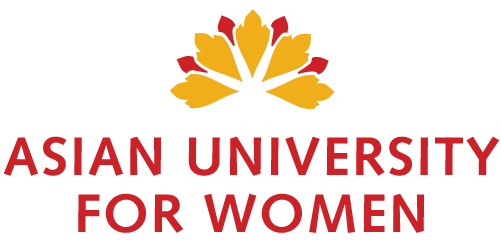Thank you from the Asian University for Women
Posted on January 3, 2023
Written by AUW
Every day is Ashura; every month is Muharram;
Every land is Karbala.
— Ali Shariati
Dear Friends,
We would like to thank you profusely for your sustained and generous support of the Asian University for Women (AUW) in the year 2022. This year at a time of our most acute needs, AUW has received more in your support, including pledges, than ever before. Thank you!
Early in January 2022, we brought the AUW community out of the paralysis of Covid-19 through the return of all faculty and students to campus. Having delayed the start of campus construction for a decade on the elusive promise of World Bank support, a promise faithlessly renewed year after year but that never actualized, having suffered all the years in wait and the vaunted multilateral agency’s Kafka-esque and otherwise bewilderingly mind numbing and wasteful motions of process without meaning, we launched the construction of our Campus Center designed by Moshe Safdie, the first Israeli-American to do a major project in Muslim Bangladesh, with private support from friends like you. The walls of the structure are now steadily rising; it is our hope to make it our first prized home in the new campus. Other buildings, including additional academic space and student and faculty residences, are being planned and designed. The importance of creating infrastructure of our own in a context where the “public grid” remains inadequate cannot be overstated. For an international university, appropriate physical facilities have a way of banishing distance and engendering the coming together of a diverse pool of people and ideas. We need a campus that is functionally excellent and aesthetically inspiring, diminishing greatly the otherwise formidable impediments of our geography. We hope to continue to build exactly such a place.
In the meantime, we are assembling an extraordinary faculty — with support from the Andrew W. Mellon Foundation, nine new PhDs in History, Literature, Philosophy or Religion, two of whom are joining AUW this month, will come together to create a new Humanities major at AUW, forcefully reminding our whole community that the life of the soul and of the mind cannot be surrendered in the rush to the market for jobs. This is not to underestimate the importance of livelihood imperatives: In our search for students, we have always emphasized our bias for those who have the imagination of the poets but also possess the knack of engineers in getting things done. The humanities will give us a chance to create our own framework for understanding and cultivating tolerance and respect among all. We will not stop by simply studying the sacred texts of different religions that cohabit in our community and beyond: we will ask our students to inhabit someone else’s religion for the duration of their study of the specific course, for it is only when you have bowed to another’s god that you might overcome that wounded otherness that otherwise condemns you to carry a crass obtuseness towards the Other.
Our commitment to serve the talented who are by-passed by the system has never been greater and will substantially grow in the months and years ahead. When Sadeka Begum, a former garment factory worker, emerged as the Valedictorian of her class a few years ago, the murmurs even in our hallways about the compromises we make in admitting students who don’t conform to the typical image of an entering university student, must have been silenced. More people will have their sights widened when Sadeka and her other “RMG Classmates” (Ready-Made Garments) announce the formation of their company Abha which will own its factory for production and export of garments. They represent the ultimate Weavers of Revolution(1) —- Abha symbolizes not only a change in the class of ownership and management, where former workers transformed by a modern education become owners and managers, but also the hope that there will be a new ethic in production and labor relations and worker safety because they know what it is to be otherwise. Maybe, just maybe, then the Taylorism that has dominated the industry will yield to new ways to provide more creative outlets for the handiwork of the workers without compromising the economic demands of high productivity and value-addition.
When our former student, Ukheng Marma, drawn from a tiny tribal minority community pitched in Chittagong Hill Tracts, entered the Massachusetts Institute of Technology (MIT) as a graduate student this fall, it injected a palpable electricity of hope in those communities which were once described as the “Fourth World within the Third World”. Later this month we will announce a major initiative in collaboration with dozens of community organizations spanning Bangladesh, India, Sri Lanka and Nepal that will bring daughters of Dalit families to AUW for a college education. Mahatma Gandhi called Dalits Harijans, “Children of God”; governments in an equally Orwellian twist refer to them as belonging to “Scheduled Castes”; they may well be children of god as well as appear on some officially proclaimed schedules but what is not told as clearly is how an entire segment of population, perhaps numbering as many as 250 million souls, has been systematically, decades since their presumed emancipation, are shackled in oppression, denied, in most cases, even the right to have rights. Instead, they have toiled as bonded laborers in cleaning other people’s excreta, banished to live in their separate apartheid colonies, suffered the depravity of unmitigated violence with little recourse to the laws, and been reduced to mere shadows in our modern existence. It may be easier to believe that you have successfully prosecuted evil by taking down the name of a Calhoun or Wilson or, even, a Rhodes; it is much harder to recognize that the system whose ancien symbols we annihilate has not really withered. They live on even if the pedestals run bare. Nowhere else is it as evident as in the case of Dalits of the Subcontinent.
So, as we say farewell to 2022 and welcome the new year, we thank you for joining us on this ever continuing journey. Our path is as yet not fully charted but our first principles are as clear and evocative as they were when the Parliament of Bangladesh paved the passage of AUW’s Charter as the Asian University for Women Act(2). No amendments are expected.
With every good wish for a happy new year,
Sincerely,
Kamal Ahmad
Asian University for Women
1. Winn, Peter. Weavers of Revolution (New York: Oxford University Press, 1986)
2. AUW Charter: http://auwsf.wpengine.com/wp-content/uploads/2021/06/AUW-Charter.pdf
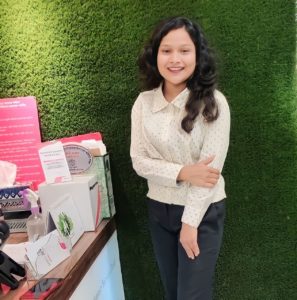
“I believe when every underprivileged person in our community will be treated with dignity & respect, will have free education access, equal livelihood & entrepreneurship opportunities only then we can create a prosperous future for Bangladesh” —-Sadeka Begum, AUW Alumnae
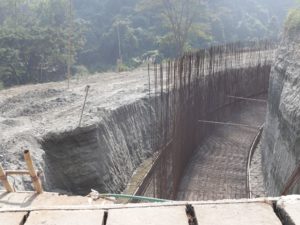
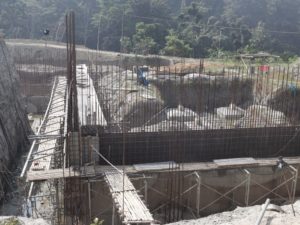
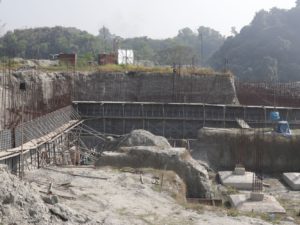
AUW Campus Construction Site
